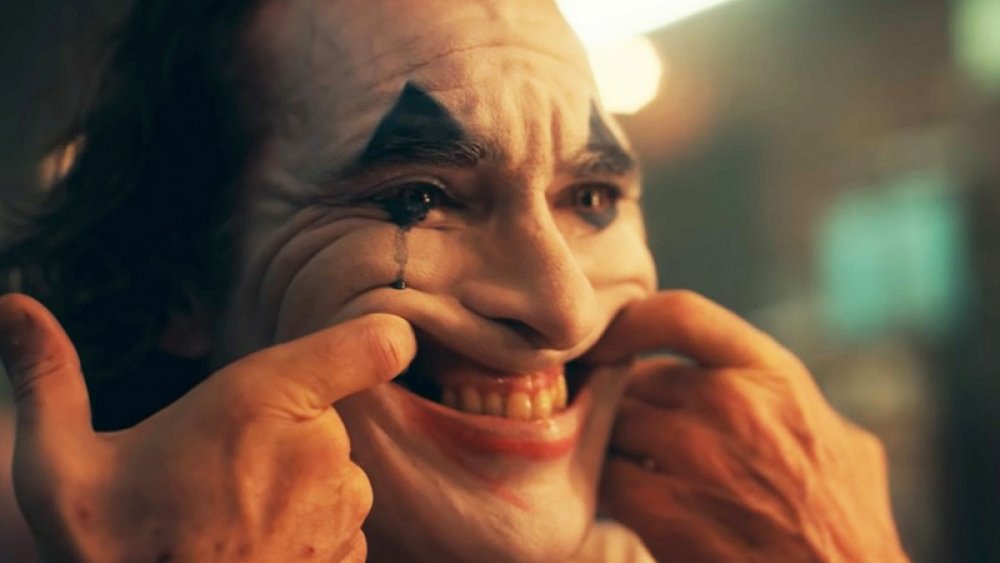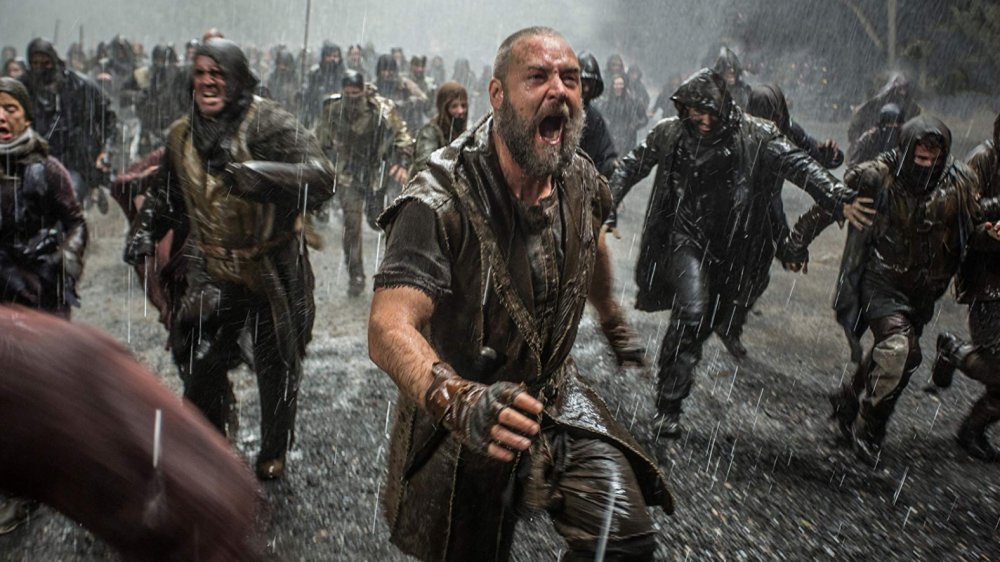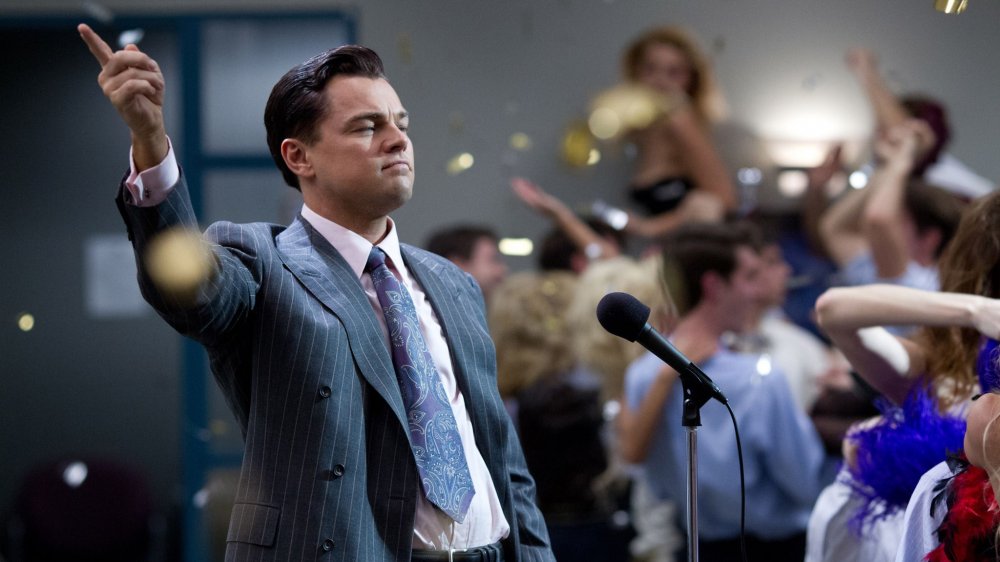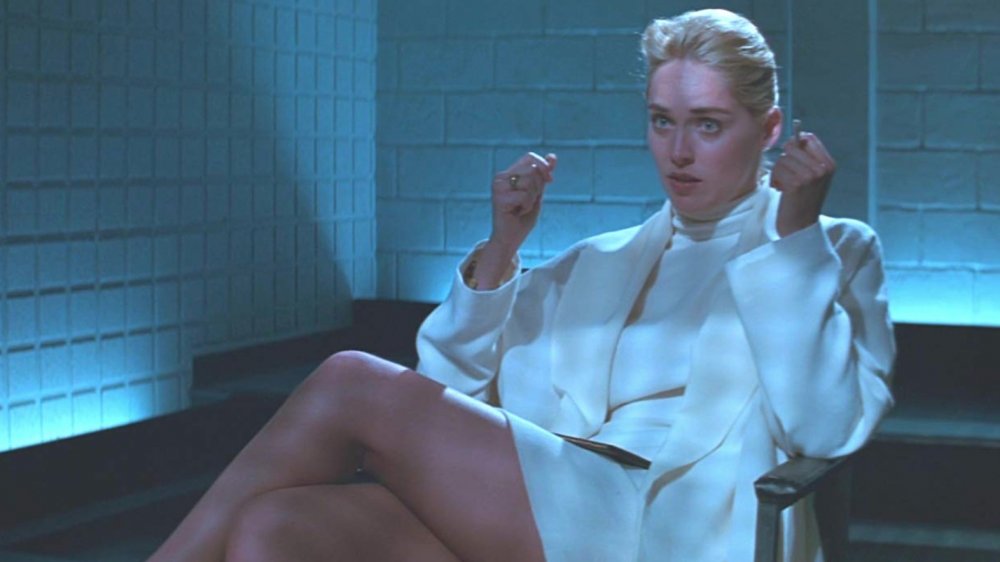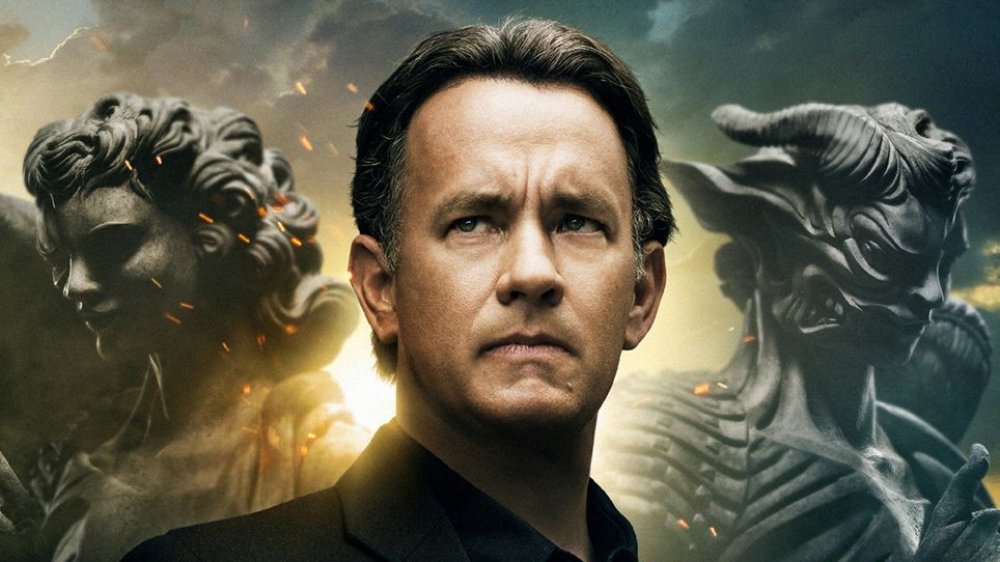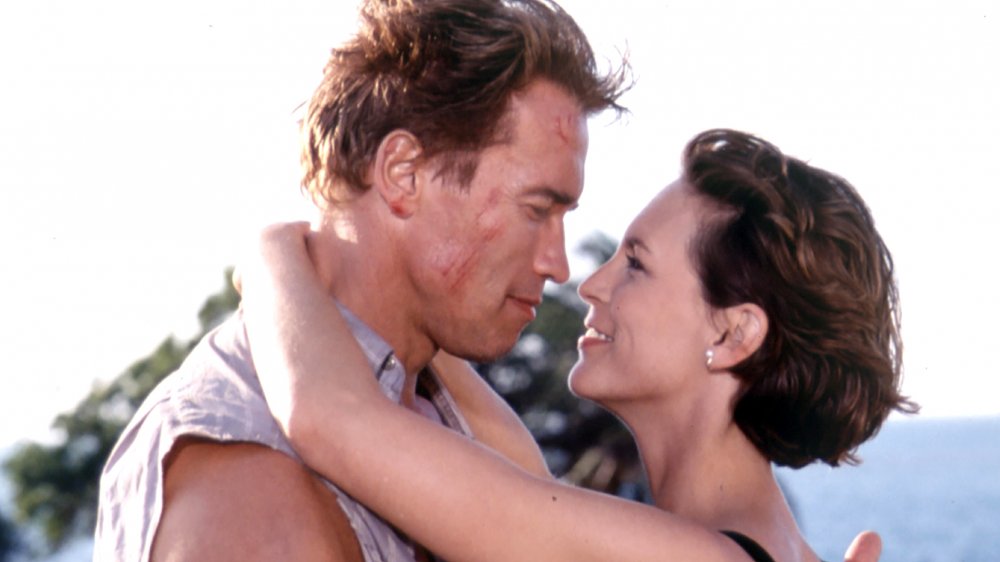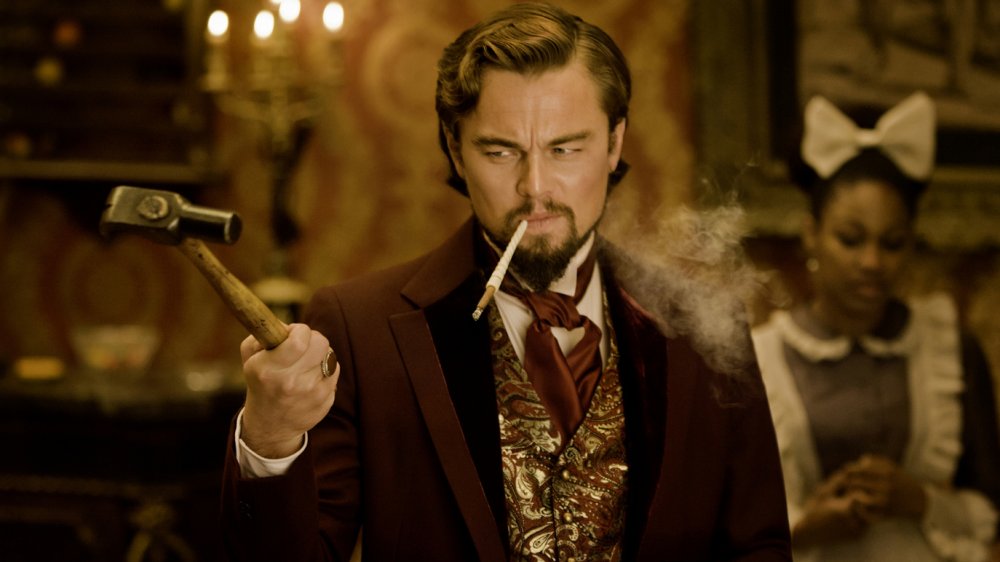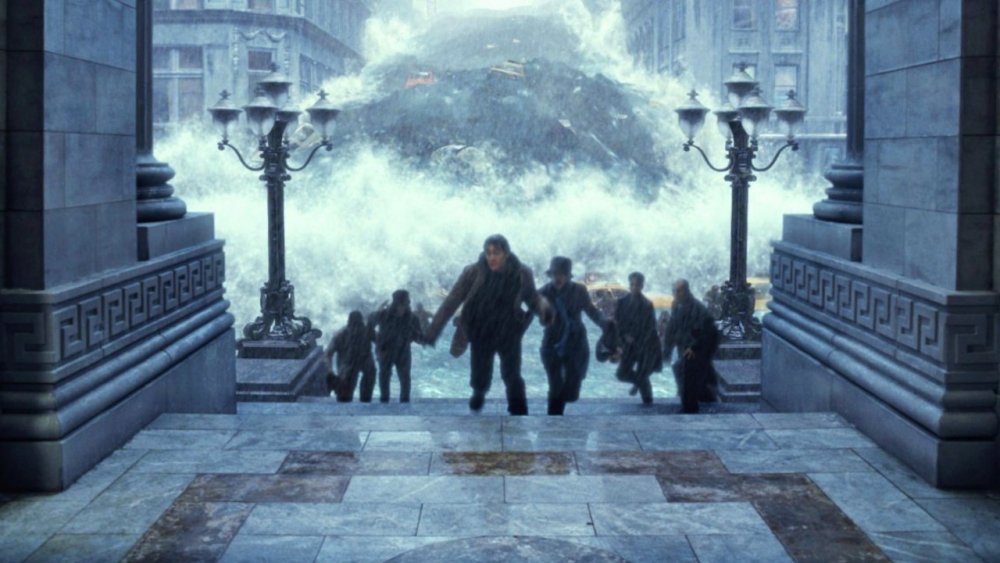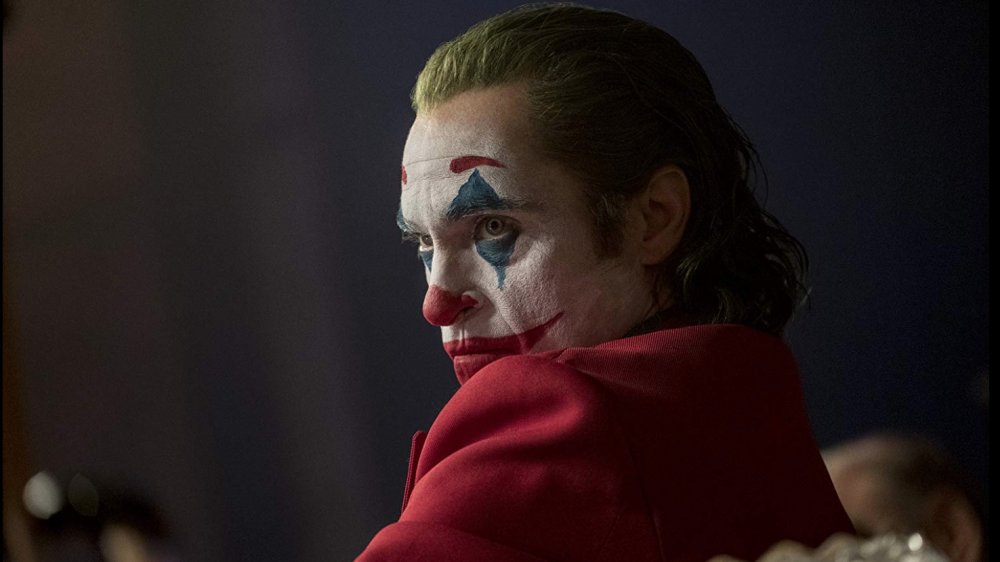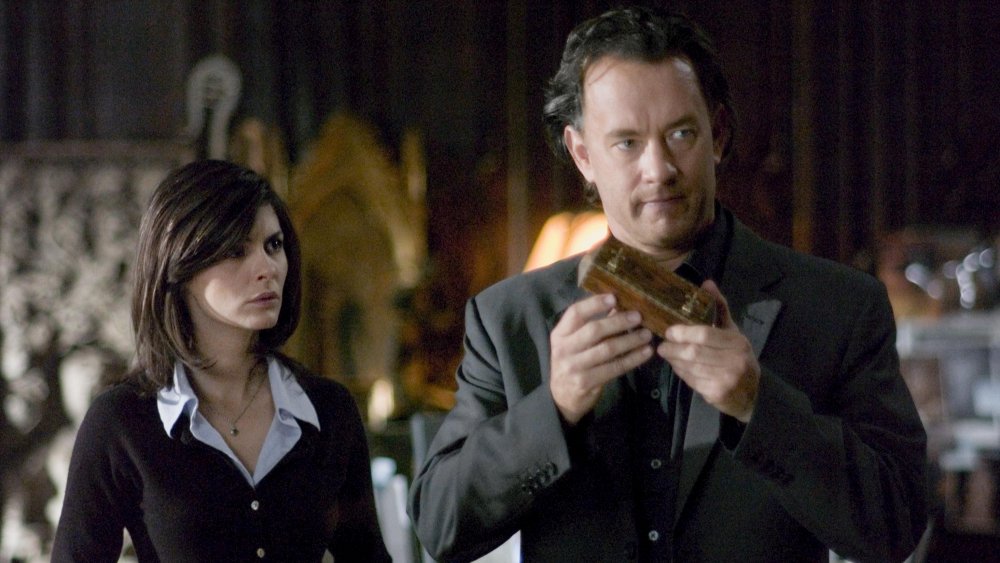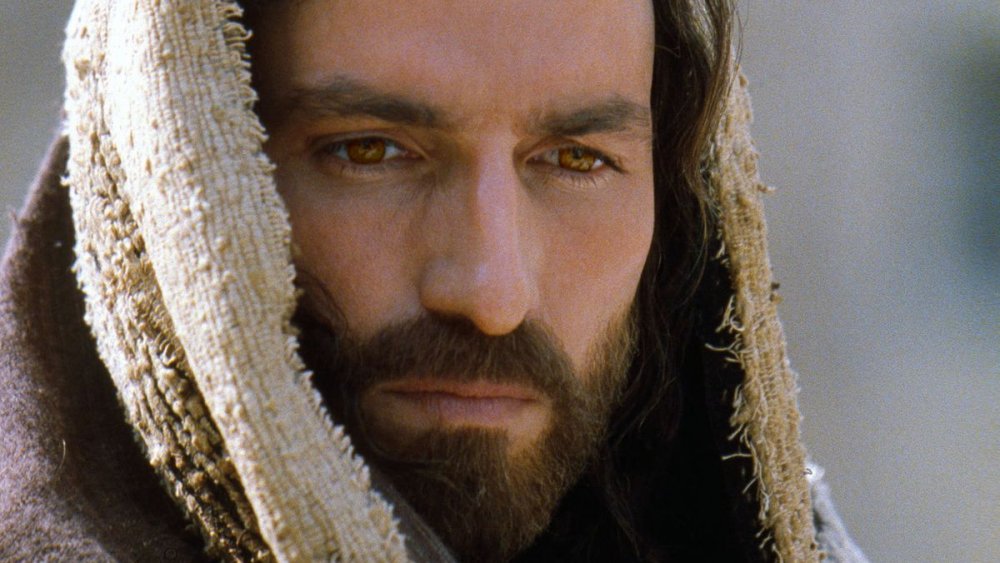The Most Successful Controversial Movies Of All Time
The playwright Oscar Wilde said it best when he wrote, "The only thing worse than being talked about is not being talked about." Or, as P.T. Barnum is often credited with saying, "There's no such thing as bad publicity." However you put it, it's undeniable that controversy oftentimes creates cash. Lots of it. Nowhere is this more true than in the film business. While "safe" superhero movies and family friendly animated films may hit blockbuster status most often, there have been plenty of movies throughout film history that have made bank not by appealing to general moviegoers, but by offending them.
Whether it's religion, politics, sex, race, or drugs, when movies tackle controversial topics, they tend to dominate the cultural debate. The film's quality is irrelevant. Some are good. Some are terrible. It doesn't matter. All that matters is that people are talking about these films, and more importantly to the movie studios, they're buying tickets to go see what all the fuss is about. While controversy can cause some movies to bomb, there are plenty of other movies that have made bank because they ticked people off. What are these movies, how much money did they make, and what was it about them that caused so much controversy? Well, here are the most successful controversial movies of all time.
Controversy couldn't sink Noah
The Passion of the Christ was an unexpected and unprecedented success in 2004, particularly with evangelical Christian communities. In The Passion's wake came a flood of religious-themed films that continues to this day, both from mainstream Hollywood and from more faith-based studios. Paramount's Noah was one of the most high-profile releases. The 2014 film stars Russell Crowe as the titular Ark builder in an adaptation of the story from the book of Genesis. The film also stars Emma Watson, Jennifer Connelly, and Anthony Hopkins, all under the direction of Darren Aronofsky.
So what's the controversy? While the film mostly hews to the Biblical interpretation, controversy stewed over several elements, such as the film's environmentalist themes, the Nephilim in the Bible being portrayed as giant rock monsters, and perhaps most notably, the "in the beginning" Creation story being equated with evolution. Oh, Aronofsky is also an outspoken atheist, and he bragged that his film was "the least biblical biblical movie ever made." So yeah, you can see how that might have ruffled a few feathers, especially with Paramount, which was purposefully trying to appeal to Christian audiences. However, Aronofsky's creative license wasn't enough to sink Noah with critics or the box office. The film garnered a 76 percent rating on Rotten Tomatoes, and it earned $101 million stateside and $362 million worldwide on a $125 million budget.
Some thought The Wolf of Wall Street was a bit excessive
Your parents may have told you it's not polite to talk about religion or politics in public, but what about Quaaludes? Released in 2013, The Wolf of Wall Street was the fifth collaboration between director Martin Scorsese and star Leonardo DiCaprio, and it's basically 180 minutes of pure, unadulterated debauchery. After all, for a movie to be considered controversial because of its content alone in this day and age, you know it has to be intense. And when it comes to controversy, this movie has it all. Hard drug use? Check. Explicit sexual content? Check. Extreme profanity? Double check. In fact, The Wolf of Wall Street holds the Guinness world record for the most expletives used in a film. The F-bomb is dropped 506 times, for an average of 2.81 times per minute.
Proving that the truth is stranger than fiction, this movie, which is based on Jordan Belfort's memoir, is all true. Or at least as true as the memories of a self-professed unreliable narrator like Belfort can be. But the controversy wasn't just on the screen. The film's producers paid the U.S. government $60 million after allegations that the movie was funded with money stolen from a Malaysian state investment fund. Jordan Belfort, whose own criminal activities are vividly depicted in the film, even called the producers "f******g criminals." If the producers were upset about paying $60 million, they were no doubt relieved when the film made $116 million domestic and $392 million worldwide.
Basic Instinct (un)crosses a line
Basic Instinct was the ninth biggest domestic box office hit of 1992, but it was definitely the most controversial. The film comes from two of Hollywood's most notorious provocateurs, director Paul Verhoeven (who would go on to direct the NC-17 rated film Showgirls) and screenwriter Joe Eszterhas (the guy who wrote Showgirls). For Basic Instinct, Eszterhas was paid $3 million, making it one of the most expensive original screenplays ever sold.
Despite Eszterhas' multi-million dollar payday, critics weren't impressed with the final film, but Stone's performance and the film itself are remembered for one controversial scene in particular: the famous legs uncrossing scene. It's hard to imagine an A-list actress doing a scene like that today, and it was pretty much unfathomable in 1992. But it paid off. Basic Instinct made $117 million domestic and $352 million worldwide on a $49 million budget. Joe Eszterhas earned his historic paycheck, and Sharon Stone proved elicit sexual content is a bankable commodity worldwide.
Fahrenheit 9/11 makes Moore than any doc ever
Documentaries aren't usually blockbuster fare. But most documentaries aren't Fahrenheit 9/11. To follow up his incendiary, Oscar-winning Bowling for Columbine, Michael Moore focused on taking down the most powerful man in the world: then-President George W. Bush. The film was released in 2004, an election year, and sides were drawn along partisan lines in the lead-up to its summer release, especially after the film took the top prize at the Cannes Film Festival, the Palme d'Or.
Despite being a documentary, Fahrenheit 9/11 performed like a summer blockbuster, opening with more than $23 million, making it the number one film for its opening weekend and beating Bowling For Columbine's total tally of $21 million in just three days. Fahrenheit 9/11 would go on to earn $119 million stateside and $222 million worldwide, making back about 37 times its $6 million budget.
While Fahrenheit 9/11 made Moore the world's most famous documentary filmmaker, the target of his ire, George W. Bush, was reelected president that November. Since then, Michael Moore hasn't been able to repeat Fahrenheit 9/11's financial success. However, no other documentary director has, either. The film currently remains the highest-grossing doc of all time, despite heavy competition from March of the Penguins and Justin Bieber: Never Say Never.
Looking for controversy? Who ya gonna call?
Despite some crazy sequel ideas, the Ghostbusters franchise stayed in developmental hell for nearly 30 years after Ghostbusters II. And the first Ghostbusters film in almost three decades wasn't a sequel that reunited Bill Murray, Dan Aykroyd, and the gang, (at least as their original characters). It was a reboot starring an all-female squad, featuring Melissa McCarthy, Kristen Wiig, Kate McKinnon, and Leslie Jones. The film sparked controversy after just the first trailer, with criticism centering around Leslie Jones, the lone African-American on the team, playing a blue-collar worker and not a scientist like the others (similar to Ernie Hudson in the original series).
The controversy didn't end there. Ghostbusters was attacked by internet fans before they had even seen the film, with many cultural critics suggesting the knee-jerk vitriol was the result of sexism. The film's director, Paul Feig, even went so far as to say, "Geek culture is home to some of the biggest a******s I've ever met in my life." While most critics seemed to like it, giving it a 74 percent Rotten Tomatoes ranking, the audience score was a rotten 50 percent.
However, that low score didn't really match up with the box office numbers. The film opened at number one with $46 million on its way to a $128 million domestic and $229 million worldwide tally. Alas, the film cost $144 million to produce, so while Ghostbusters made a lot of money as far as controversial movies go, it bombed as a summer blockbuster.
Angels & Demons was a super successful thriller
We know what you're thinking. Tom Hanks? Ron Howard? Controversy? What? You'd be surprised. Angels & Demons is the 2009 sequel to Howard's 2006 blockbuster The Da Vinci Code. Once again, Hanks plays Harvard symbologist Robert Langdon. This time, the professor must work with a nuclear physicist to solve a murder and prevent a terrorist attack against the Vatican. Y'know, just another day at the office for your typical Harvard professor.
Based on Dan Brown's controversial novel of the same name, the Vatican believed Angels & Demons was anti-Catholic, and banned the production from filming in the Holy See. The Vatican even contemplated calling for a boycott. Tom Hanks didn't see what all the fuss was about, saying, "Everybody is looking for some scandal whether a scandal exists or not. I think a kind of natural reaction is now that somehow because it's the second Robert Langdon mystery that there is some degree of controversy over it. And there is really not."
However one feels about the controversy, it wasn't just some Catholics who didn't like it. Critics panned it, giving it a rotten 37 percent Tomatometer score. While the audience score wasn't much better (57 percent), Angels & Demons made a lot of dollars and cents: $133 million stateside and $485 million worldwide on a $150 million budget.
James Cameron courts controversy with True Lies
James Cameron is one of the most bankable directors of all time, having directed the highest-grossing film ever — twice! First was 1997's Titanic, which was sunk by Cameron's own Avatar in 2009. While Cameron is able to make it rain, he's also good at stirring the pot. Case in point, True Lies.
Released in 1994, True Lies is a remake of the French action comedy La Totale, and it stars Arnold Schwarzenegger as a CIA agent who pretends to be a boring, mild-mannered computer salesman to his wife, Jamie Lee Curtis. How anyone could buy Arnie as a computer geek is beyond us, but hey, maybe he liked pumping iron after pushing pencils?
However, Arnie's casting as a nerd wasn't what made True Lies controversial. A loose coalition of Arab-Americans called for a boycott of the film due to its depiction of the movie's Arab terrorist villains. The film was likewise decried as sexist because of Jamie Lee Curtis' infamous striptease scene. Controversy followed the film years after its release when Eliza Dushku, who played Schwarzenegger and Curtis' daughter, alleged she was assaulted by the film's stunt coordinator. Despite the controversy, past and present, True Lies made $146 million domestically and $378 million worldwide on a $115 million budget.
Tarantino's use of expletives and violence is Unchained
Quentin Tarantino and controversy go together like, well, Quentin Tarantino and the F-bomb. However, it wasn't the F-bomb that sparked controversy in the director's 2012 film, Django Unchained. Instead, it was the N-word, which was dropped more than 100 times during the film's nearly three-hour runtime. Leonardo DiCaprio, who played cruel, racist slave owner Calvin Candie, was so uncomfortable with the amount of times he had to say the word that his co-stars, Jamie Foxx and Samuel L. Jackson, had to intervene.
The film's violence was also troubling to many audiences, in particular a scene in which a slave is eaten alive by dogs. For some reason, however, there wasn't much controversy about Tarantino's ridiculous decision to cast himself as an Aussie. That accent ... shudder. Well, despite the non-stop violence and profanity portrayed on-screen (or perhaps because of it), Django Unchained was a major hit, earning $162 million stateside and a staggering $425 million worldwide on a $100 million budget. Django Unchained was also a hit come awards season, earning five Oscar nominations and wins for Christoph Waltz's supporting performance and Quentin Tarantino's original screenplay.
The financial climate was good for this disaster flick
What if instead of a documentary, Al Gore's An Inconvenient Truth was a blockbuster disaster movie? It would probably look something like The Day After Tomorrow. Released in the summer of 2004, The Day After Tomorrow was directed by Roland Emmerich, who in his career has blown up just about everything in movies like Independence Day, Godzilla, The Patriot, 10,000 B.C., and 2012. But this time, it wasn't an alien invasion or a giant mutated iguana that was destroying the world. Instead, it was anthropogenic global warming. And anything that deals with global warming is liable to stir up controversy.
However the critics felt about the film's politics, they weren't impressed with the film itself, and they treated it with the same derision that they do most of Roland Emmerich's films. The Day After Tomorrow earned a disastrous 44 percent rating on Rotten Tomatoes, with the consensus being "The Day After Tomorrow is a ludicrous popcorn thriller filled with clunky dialogue, but spectacular visuals save it from being a total disaster." Still, controversy couldn't kill this film, and neither could the critics. It earned $186 million domestically and $544 million worldwide, making it one of Emmerich's biggest hits.
This R-rated comic book film was incredibly successful
There had been rumblings about a Joker-centric film for years, with Hollywood heavyweights Martin Scorsese and Leonardo DiCaprio rumored to have been attached (though Leo's involvement has been disputed). When a film was finally announced, it would be with The Hangover's Todd Phillips directing and Joaquin Phoenix donning the greasepaint. The reaction from fans was mixed.
Then Joker did the unthinkable, winning the coveted Golden Lion at the prestigious Venice Film Festival. This put Joker, a comic book movie, in the same company as films by Federico Fellini, Akira Kurosawa, Ingmar Bergman, Ang Lee, and Alfonso Cuarón. It was an achievement no other comic book movie, or any other commercial blockbuster for that matter, had ever accomplished. The talk was that Joker wasn't just a good movie — it was that Joker transcended its genre into the realm of high cinematic art.
And almost immediately the controversy started. Around the same time the film was receiving euphoric praise, a counter-narrative was brewing that claimed Joker could potentially inspire violent, unstable loners. Phoenix even walked out of an interview when he was asked if he thought the movie might inspire violence. Despite winning one of cinema's biggest prizes, the critical response was muted, with only a 68 percent Fresh rating on Rotten Tomatoes. However, moviegoers loved Joker, awarding it an 89 percent audience score and propelling it to a record-breaking $96 million opening weekend, nearly double its $55 million budget, giving Warner Brothers plenty to smile about.
The haters couldn't crack this Code
Tom Hanks and Ron Howard may be the two nicest guys in Hollywood. One is Forrest Gump and Woody from Toy Story, while the other played Opie and Richie Cunningham, for crying out loud! Yet the two courted serious controversy when they became attached to the screen adaptation of one of the most contentious (and successful) novels of modern times: The Da Vinci Code by Dan Brown.
While the scholarship of The Da Vinci Code has largely been disputed by experts, its central claims that Jesus Christ was married to Mary Magdalene and that the Catholic Church has covered this up for centuries helped make the novel an international bestseller. And if there's one thing Hollywood loves, it's a sure thing, and a movie version of The Da Vinci Code was certainly that. The controversy surrounding the 2006 movie was largely the same as it was for the 2003 novel, with people saying it was historically inaccurate and anti-Catholic. Critics panned it when it was released, giving it a measly 25 percent on Rotten Tomatoes. And moviegoers weren't too impressed either, giving it a mediocre 57 percent audience score.
Nevertheless, the film's popular source material was enough to score a $77 million opening weekend, and by the time it was out of theaters, it had earned a $217 million domestic haul and an astounding $758 million worldwide gross.
Mel Gibson's Passion of the Christ stirred up all sorts of controversies
Studios didn't see any financial upside in Mel Gibson's graphic retelling of Jesus Christ's final hours, especially considering the actor-turned-director wanted to film in the "dead" languages of Aramaic and Latin. And since Gibson couldn't find financing for his passion project, he paid nearly $30 million out of his own wallet. But that was just the start of the firestorm.
Leading up to The Passion of the Christ's 2004 Ash Wednesday release day, the film became a lightning rod for controversy centered around its gory violence and alleged anti-Semitism. Regarding the former, Roger Ebert said, "This is the most violent film I have ever seen," though he gave it four stars and said he didn't find it anti-Semitic. The Anti-Defamation League disagreed, saying, "The ramifications of this film will reach far beyond Hollywood, with ... the possibility that it will fuel new anti-Semitism."
The critical response was poor, as the film received a 49 percent Rotten Tomatoes score, but moviegoers were much kinder, giving it an 80 percent audience score. Gibson circumvented the traditional movie publicity route, instead targeting evangelical Christians, and his gamble paid off. The Passion of the Christ had an $83 million opening weekend, eventually earning $370 million domestically and $611 million worldwide.
